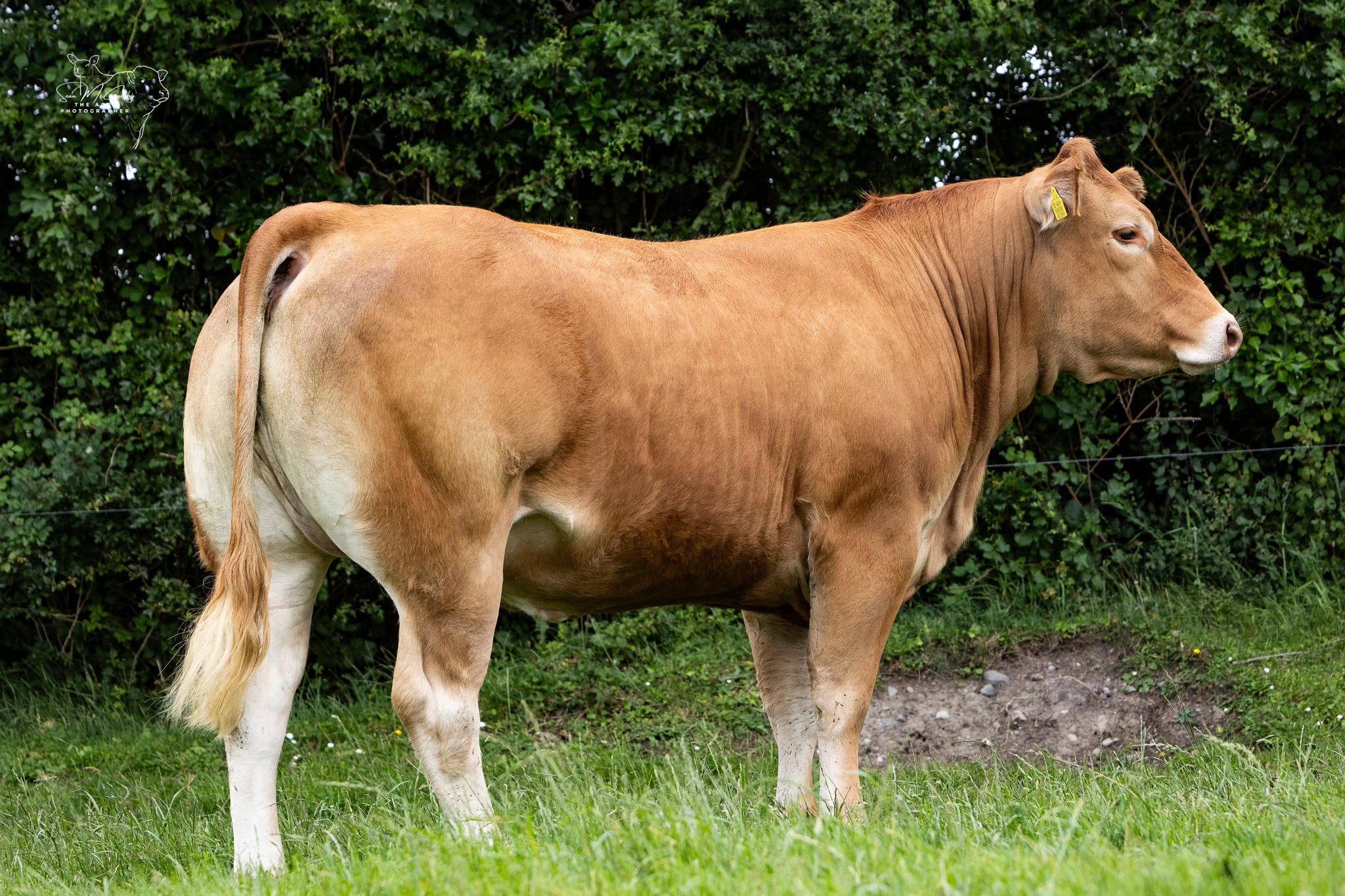
In what can only be described as ground-breaking research, the Irish Farmers Journal has exclusively revealed that Limousin-sired cattle have the lowest daily methane emissions ahead of a host of other breeds in a 5-year study involving 1,500 head of cattle.
These results were revealed from the Greenbreed Research Project at the Irish Cattle Breeding Federation’s (ICBF) performance test centre at Tully, Co. Kildare – involving the ICBF, Teagasc and the Department of Agriculture, Food and the Marine.
In addition, it is important to note that while Limousin X animals had the lowest daily emissions, there was no negative impact on growth rates or animal performance. According to the Irish Farmers Journal, progeny from 57 Limousin bulls were involved in the trial – including both male and female animals.
This major breakthrough in a world’s first study – coupled with the Limousin’s ability to maximise: 1) performance in terms of daily growth rates at grass and in the finishing stage; 2) carcass weight and conformation; 3) grading and killout %; 4) and its potential to meet target specifications – make it the number one breed for use in both the Irish suckler and dairy herd.
Speaking after the exclusive results, Irish Limousin Cattle Society president, Dr. Alan Kelly, said: “These are exceptionally encouraging findings for both Limousin genetics and the wider Irish beef and dairy industries.
“This novel, independently-validated research clearly cements Limousin as the beef cattle breed, with the complete package: the lowest methane emissions and environmental footprint combined with the highest feed utilisation and beef carcass conversion efficiency,” he highlighted.

“The data conclusively shows Limousin genetics can produce up to 30% less daily methane emissions relatively to other high emissions beef breeds, for the same level of productivity and performance, thereby improving all environmental-related emission metrics – be it daily emissions, methane yield or methane intensity.”
Dr. Kelly also noted that this is excellent news for the national suckler herd, beef farmers and the prime beef industry – given the prominence of the Limousin breed as the key nucleus breed within this sector with circa 40% of calvings annually sired by Limousin genetics and circa 40% of suckler cows sired by a Limousin bull.
In addition to this, with some 8% of dairy cows mated to Limousin genetics, there is huge potential within the Irish dairy herd to produce Limousin-sired calves – from the short gestation, easy-calving sires available – with high genetic beef merit – that are now proven to be more environmentally sustainable.

‘Scientific evidence to justify reward’
He said: “Moving forward, the onus is now the beef industry and stakeholders to ensure that these inherent breed environmental and efficiency benefits are appropriately acknowledged and accurately captured – within our genetic indices and national breeding programmes – to improve the environmental sustainability of the national beef cattle herd.
“The sector now has the scientific evidence and tools to justifiably reward and provide financial incentives to producers who breed prime beef cattle from breeds and genetic lines proven to have low environmental emissions aligned with high beef merit.
“Such premium beef products would have a massive potential to be traded and promoted on their green environmental credentials, and command high-value premiums from the marketplace – as consumers move and choose beef on environmental sustainability claims,” he concluded.



